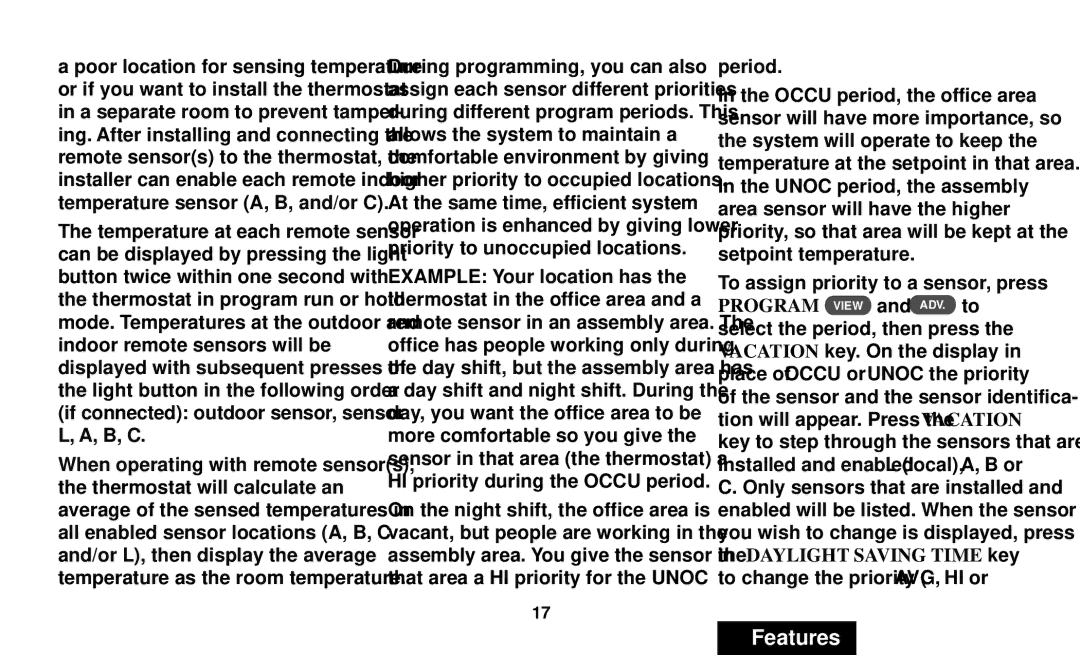
a poor location for sensing temperature or if you want to install the thermostat in a separate room to prevent tamper- ing. After installing and connecting the remote sensor(s) to the thermostat, the installer can enable each remote indoor temperature sensor (A, B, and/or C).
The temperature at each remote sensor can be displayed by pressing the light button twice within one second with the thermostat in program run or hold mode. Temperatures at the outdoor and indoor remote sensors will be displayed with subsequent presses of the light button in the following order (if connected): outdoor sensor, sensor L, A, B, C.
When operating with remote sensor(s), the thermostat will calculate an average of the sensed temperatures in all enabled sensor locations (A, B, C and/or L), then display the average temperature as the room temperature.
During programming, you can also assign each sensor different priorities during different program periods. This allows the system to maintain a comfortable environment by giving higher priority to occupied locations. At the same time, efficient system operation is enhanced by giving lower priority to unoccupied locations.
EXAMPLE: Your location has the thermostat in the office area and a remote sensor in an assembly area. The office has people working only during the day shift, but the assembly area has a day shift and night shift. During the day, you want the office area to be more comfortable so you give the sensor in that area (the thermostat) a HI priority during the OCCU period.
On the night shift, the office area is vacant, but people are working in the assembly area. You give the sensor in that area a HI priority for the UNOC
17
period.
In the OCCU period, the office area sensor will have more importance, so the system will operate to keep the temperature at the setpoint in that area. In the UNOC period, the assembly area sensor will have the higher priority, so that area will be kept at the setpoint temperature.
To assign priority to a sensor, press
PROGRAM VIEW and ADV. to
select the period, then press the VACATION key. On the display in place of OCCU or UNOC the priority of the sensor and the sensor identifica- tion will appear. Press the VACATION key to step through the sensors that are installed and enabled L (local), A, B or C. Only sensors that are installed and enabled will be listed. When the sensor you wish to change is displayed, press the DAYLIGHT SAVING TIME key to change the priority (AVG, HI or
Features
